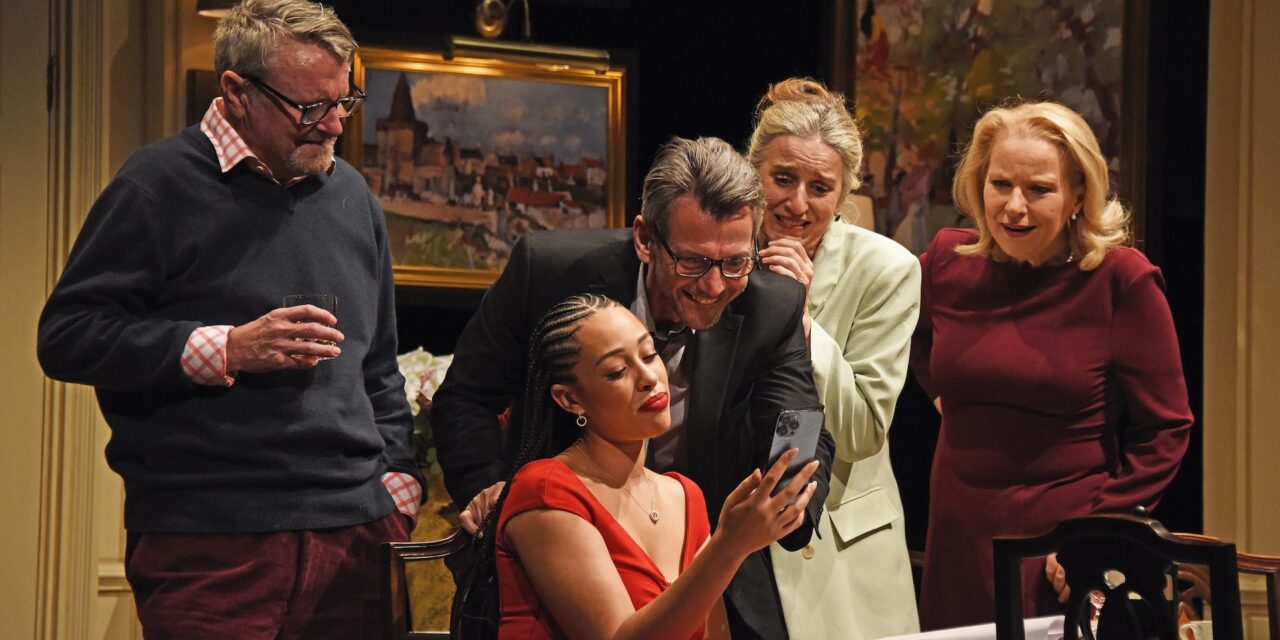
30 September – 5 October
Author Ian Rankin found himself confined to a single room during lockdown. What better then, than to put this sense of claustrophobia to good use in this, his second staged play co-written with Simon Reade and directed by Loveday Ingram.
Rebus: A Game Called Malice does what it says on the can – firstly, an affable round of murder mystery gets underway at the opulent home of Harriet and Paul Godwin (Teresa Banham and Neil McKinven) before things descend into a bitter blame game between the guests. Things suddenly turn serious when a dead body is discovered in the house, although it was only the gestures of Banham as Harriet that conveyed any convincing sense of unease at this terrible news.
So just who had had the opportunity and the reason to do the bumping off amongst this room full of suspects, most of them shielding darker inner truths? Enter our hero.
Detective Inspector Rebus (Gray O’Brien) has been invited by old flame lawyer Stephanie Jeffries (Abigail Thaw) to the party, held in a well-heeled district of Edinburgh. On Terry Parsons’ immaculate set, the gracious lounge at 75 Heriot Row, with walls festooned with Harriet Godwin’s collection of Scottish Colourist paintings, we meet the other guests, Jack Fleming (Billy Hartman), a feisty tough-nut casino owner, and his much younger partner, the online influencer, Candida (Jade Kennedy).
As in most ‘drawing room’ plays there were an awful lot of drinks being poured while Rebus set about, as he described it, to ‘read the room’. In a couple of dramatic fourth wall moments he lets the audience in on his thoughts. He has twigged (of course) that there is much more than meets the eye going on here. Secrets haunt the room like caged beasts. Cracks open just a little before the crevasses of hard truths yawn open in the second half. As with Rankin’s novels, the fun lies in the subplots that reveal further depths of dastardly behaviour. He has enjoyed himself puncturing the surface hypocrisies of the middle class in this piece. The Godwins’ spat in particular has been laced with acrimony, while Kennedy’s Candida, a vivid presence on stage, was sharp-witted, and provided a good foil for the curmudgeonly elders in the room.
Because the action is confined to the single room throughout, with very little physical interaction between the players, it falls upon Rankin’s verbal dexterity to get us through the evening feeling we have had an experience of sorts. This fine cast do their best to inject some venom and regret into their dysfunctional characters, with occasional black humour lifting what could feel, at times, a slightly staid affair. But the reveal was worthy of any Rankin plot.
Rebus, it seems, has not only read the room, he has been instrumental in giving truth its moment, much to the delight of Stephanie, who, like many others before and since her, has fallen under his spell, only to decide that he has too many issues to want to live with.
★★★☆☆ Simon Bishop 1.10.24
Photo credit: Nobby Clark


